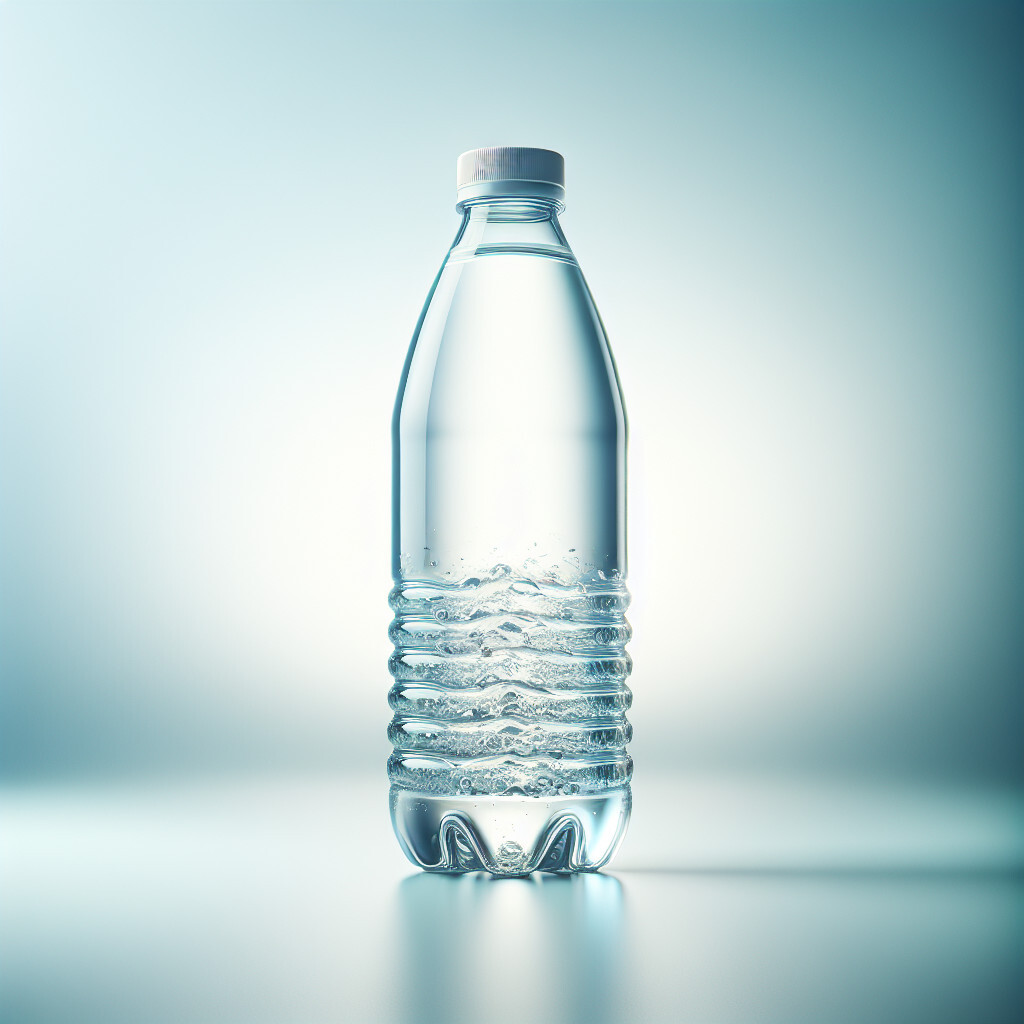-
Table of Contents
“Pure Hydration, Naturally Refreshing.”
Introduction

Mineral water that is not carbonated, also known as still mineral water, is a type of bottled water that contains various minerals such as salts, sulfur compounds, and gases. It is sourced from a mineral spring and does not undergo any chemical processing. Unlike sparkling mineral water, it does not contain added carbon dioxide, which gives a fizzy effect. Still mineral water is often consumed for its perceived health benefits, as the minerals it contains are essential for the human body’s functions.
Health Benefits of Drinking Non-Carbonated Mineral Water
Mineral water, a natural resource that is rich in essential minerals like calcium, magnesium, and potassium, is a vital component of a healthy diet. While carbonated mineral water has gained popularity in recent years, non-carbonated mineral water offers a plethora of health benefits that are often overlooked. This article aims to shed light on the health benefits of drinking non-carbonated mineral water, emphasizing its importance in maintaining overall well-being.
Non-carbonated mineral water, also known as still mineral water, is free from added carbon dioxide. This makes it a suitable choice for those who are sensitive to the fizzy sensation of carbonated drinks or those who suffer from digestive issues. The absence of carbonation allows for easier digestion and absorption of the water, making it an ideal choice for hydration.
One of the primary health benefits of non-carbonated mineral water is its contribution to bone health. It is a rich source of calcium, a mineral that is crucial for maintaining strong and healthy bones. Regular consumption of mineral water can help prevent the onset of osteoporosis and other bone-related diseases. Moreover, the magnesium content in mineral water aids in the absorption of calcium in the body, further enhancing its bone-strengthening properties.
In addition to promoting bone health, non-carbonated mineral water also plays a significant role in maintaining cardiovascular health. The potassium present in mineral water helps regulate blood pressure levels, reducing the risk of heart diseases. Furthermore, the magnesium in mineral water aids in the prevention of heart diseases by maintaining the rhythm of the heart and preventing the formation of blood clots.
Non-carbonated mineral water also aids in digestion. The sulfate compounds found in mineral water stimulate the pancreas to produce digestive enzymes, which help break down food more efficiently. This leads to better digestion and absorption of nutrients, contributing to overall digestive health.
Another noteworthy benefit of non-carbonated mineral water is its role in weight management. Mineral water is calorie-free, making it an excellent choice for those looking to maintain or lose weight. The high mineral content can also help curb cravings, as deficiencies in certain minerals can often lead to increased hunger.
Furthermore, the high silica content in some types of non-carbonated mineral water can contribute to skin health. Silica is known to boost collagen production, which can lead to healthier, more youthful-looking skin. Regular consumption of mineral water can, therefore, contribute to improved skin health and appearance.
Lastly, non-carbonated mineral water is a more environmentally friendly choice compared to its carbonated counterpart. The process of carbonation involves the release of carbon dioxide, a greenhouse gas, into the atmosphere. By choosing non-carbonated mineral water, consumers can contribute to reducing greenhouse gas emissions.
In conclusion, non-carbonated mineral water offers a multitude of health benefits, ranging from promoting bone and cardiovascular health to aiding in digestion and weight management. Its high mineral content and absence of carbonation make it a healthy and easily digestible choice for hydration. Moreover, its environmental benefits make it a sustainable choice for consumers. Therefore, incorporating non-carbonated mineral water into one’s daily routine can significantly contribute to overall health and well-being.
Comparing Non-Carbonated Mineral Water Brands: A Comprehensive Review
Mineral water, a refreshing beverage that is not only hydrating but also packed with essential minerals, has become a popular choice among health-conscious consumers. While carbonated mineral water has its own appeal, non-carbonated mineral water is often preferred for its smooth, clean taste and the absence of the fizzy sensation that some find off-putting. This article aims to provide a comprehensive review of several non-carbonated mineral water brands, comparing their taste, mineral content, and overall quality.
Firstly, let’s consider Evian, a brand that originates from the French Alps. Evian is renowned for its neutral pH and balanced mineral content, which includes calcium, magnesium, and potassium. The water is naturally filtered through glacial sand, which imparts a distinctive, crisp taste that many consumers find appealing. Moreover, Evian’s commitment to sustainable practices, such as using 100% recycled plastic for their bottles, adds to its appeal for environmentally conscious consumers.
Transitioning to another brand, Fiji water, sourced from an underground aquifer in the remote Yaqara Valley of Viti Levu, is another non-carbonated mineral water that has gained a significant following. Fiji water is known for its high silica content, which gives it a soft, smooth mouthfeel. Additionally, the water’s natural filtration process through volcanic rock contributes to its unique mineral profile, which includes magnesium and calcium. However, it’s worth noting that Fiji’s environmental footprint, due to its remote source and extensive shipping, may be a concern for some consumers.
Moving on, let’s discuss Voss, a Norwegian brand that offers both still and sparkling mineral water. Voss still water is sourced from an underground aquifer in the pristine wilderness of Southern Norway, protected from pollutants by layers of rock and sand. The water is naturally low in sodium and has a clean, refreshing taste. However, some consumers have criticized Voss for its high price point, which is often attributed to its sleek, designer bottle rather than the water itself.
Lastly, we turn our attention to Icelandic Glacial, a brand that prides itself on being sourced from one of the world’s purest ecosystems. Icelandic Glacial water is naturally high in alkalinity, with a pH level of 8.4, and contains a balanced range of minerals. The brand’s commitment to carbon neutrality and sustainable practices is commendable, although the water’s taste has been described as somewhat flat by some consumers.
In conclusion, when comparing non-carbonated mineral water brands, it’s clear that each has its own unique selling points and potential drawbacks. Factors such as taste, mineral content, source, environmental impact, and price all come into play. Evian and Icelandic Glacial stand out for their commitment to sustainability, while Fiji and Voss offer distinctive taste profiles due to their unique sources and mineral compositions. Ultimately, the choice of non-carbonated mineral water will depend on individual preferences and priorities. Whether you value a smooth mouthfeel, a balanced mineral profile, or a brand’s environmental footprint, there’s a non-carbonated mineral water out there to suit your needs.
The Role of Non-Carbonated Mineral Water in Hydration and Wellness
Mineral water, particularly the non-carbonated variety, plays a significant role in maintaining hydration and promoting overall wellness. This natural resource, sourced from underground reservoirs and springs, is rich in essential minerals like calcium, magnesium, and potassium. These minerals are vital for the human body’s optimal functioning, making non-carbonated mineral water a healthy choice for hydration.
The importance of hydration to human health cannot be overstated. It aids in maintaining the body’s temperature, lubricating joints, and facilitating various bodily functions. Non-carbonated mineral water, with its natural mineral content, not only quenches thirst but also replenishes the body’s mineral reserves. This dual role makes it an excellent choice for maintaining hydration, particularly in hot climates or during physical exertion.
The absence of carbonation in mineral water is a significant factor in its appeal. Carbonated water, while refreshing, can cause bloating and discomfort in some individuals. Non-carbonated mineral water, on the other hand, provides the same hydration benefits without these potential side effects. This makes it a suitable choice for individuals with sensitive digestive systems or those who simply prefer a smoother drinking experience.
Moreover, the minerals found in non-carbonated mineral water have numerous health benefits. Calcium, for instance, is crucial for bone health and muscle function. Magnesium plays a role in over 300 enzymatic reactions in the body, including energy production and DNA synthesis. Potassium, meanwhile, is essential for heart health and proper cellular function. By consuming non-carbonated mineral water, one can easily supplement their dietary intake of these vital minerals.
Non-carbonated mineral water also has a role to play in weight management. Unlike many commercial beverages, it is free from sugars and artificial sweeteners, making it a calorie-free choice for hydration. This, coupled with the fact that adequate hydration can aid in feelings of fullness, makes non-carbonated mineral water a valuable tool in weight management strategies.
Furthermore, the purity of non-carbonated mineral water is another factor contributing to its health benefits. It is typically sourced from protected underground sources, away from industrial pollution. This means it is free from contaminants often found in tap water, such as chlorine and heavy metals. As such, non-carbonated mineral water is not only a healthier choice but also a safer one.
In conclusion, non-carbonated mineral water offers numerous benefits for hydration and overall wellness. Its natural mineral content contributes to various bodily functions, while its lack of carbonation makes it a comfortable choice for hydration. Its role in weight management and its purity further enhance its appeal as a healthy beverage. As our understanding of nutrition and wellness continues to evolve, the value of simple, natural resources like non-carbonated mineral water becomes increasingly clear. It is, indeed, more than just water; it is a source of health and wellbeing.
Understanding the Source and Processing of Non-Carbonated Mineral Water
Mineral water that is not carbonated, often referred to as still mineral water, is a popular choice for many health-conscious individuals. This type of water is sourced from underground reservoirs and mineral springs, and it contains various minerals like calcium, magnesium, and potassium, which are essential for human health. The unique composition of non-carbonated mineral water is determined by the geological and geographical characteristics of its source, making each brand of mineral water distinct in its mineral content.
The process of sourcing non-carbonated mineral water begins with identifying a suitable underground source. This could be a mineral spring, a well, or an aquifer. The water from these sources is naturally filtered as it percolates through layers of rock, which also enrich it with minerals. The water is then extracted using pumps and transported to a processing facility. It is important to note that the extraction process is carefully controlled to prevent any contamination and to maintain the natural mineral composition of the water.
Once at the processing facility, the water undergoes rigorous testing to ensure it meets the required safety and quality standards. This includes testing for any harmful substances such as heavy metals or bacteria. If any contaminants are detected, the water is treated using various methods such as filtration, ultraviolet light, or ozone treatment. However, the treatment process is designed to remove contaminants without altering the natural mineral content of the water.
After the water has been tested and treated, it is then bottled under sterile conditions. The bottling process is also carefully controlled to prevent any contamination. This includes using sterilized bottles and caps, and filling and sealing the bottles in a clean environment. The bottled water is then stored in a cool, dry place until it is ready for distribution.
Non-carbonated mineral water is often preferred over carbonated mineral water due to its smooth taste and the absence of carbon dioxide gas. Carbonated water can sometimes cause bloating or discomfort, especially for those with sensitive digestive systems. Moreover, non-carbonated mineral water is a healthier alternative to sugary drinks and can help to maintain hydration levels throughout the day.
However, it is important to note that while non-carbonated mineral water is a good source of essential minerals, it should not be relied upon as the sole source of these nutrients. A balanced diet is still necessary to meet the body’s nutritional needs. Furthermore, while the minerals in non-carbonated mineral water can contribute to good health, excessive consumption of certain minerals can be harmful. Therefore, it is advisable to consume non-carbonated mineral water in moderation.
In conclusion, non-carbonated mineral water is a natural, healthy beverage that is sourced from underground reservoirs and mineral springs. It undergoes rigorous testing and treatment to ensure it is safe to drink and retains its natural mineral content. While it is a good source of essential minerals, it should be consumed as part of a balanced diet. With its smooth taste and health benefits, non-carbonated mineral water is a refreshing and nutritious choice for hydration.
Q&A
1. Question: What is non-carbonated mineral water?
Answer: Non-carbonated mineral water is water that comes from a mineral spring and does not contain any added carbon dioxide gas or effervescence.
2. Question: What are the benefits of drinking non-carbonated mineral water?
Answer: Non-carbonated mineral water can help replenish the body’s minerals, aid in digestion, improve bone health due to its calcium content, and keep the body hydrated.
3. Question: How is non-carbonated mineral water different from tap water?
Answer: Non-carbonated mineral water is sourced from underground reservoirs and springs, and contains various minerals like calcium, magnesium, and potassium. Tap water, on the other hand, is treated municipal water and may not contain these minerals.
4. Question: Can non-carbonated mineral water be used in cooking?
Answer: Yes, non-carbonated mineral water can be used in cooking. It can be used to boil, steam, or poach foods, and it can also be used in baking. The minerals in the water can enhance the flavor of the food.
Conclusion
Non-carbonated mineral water is a healthy beverage choice as it provides essential minerals like calcium, potassium, and magnesium. It is free from added sugars and artificial flavors, making it a beneficial addition to a balanced diet. It also aids in hydration without the bloating or gas that can sometimes be associated with carbonated water.






